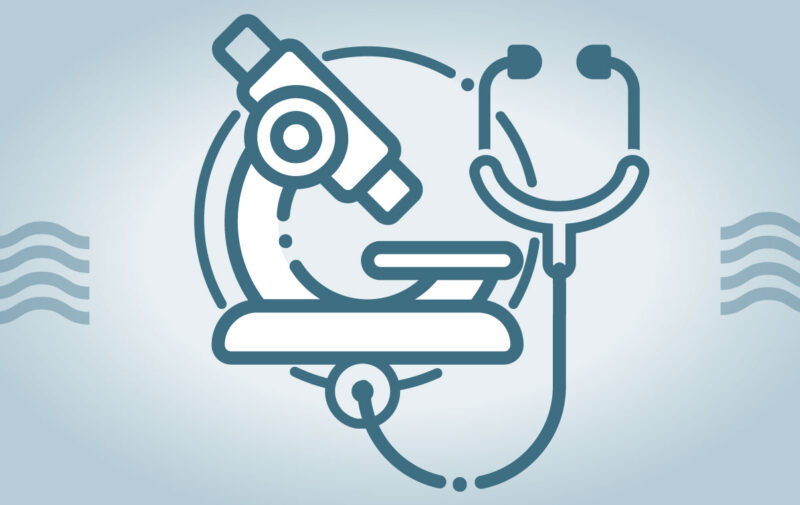
New Investigator Program
Mechano-electrical Feedback in Pathophysiology of Atrial Fibrillation: Novel Strategy for Antiarrhythmic Therapy
Outcome Report
Awarded in
2017
Atrial fibrillation (AF) is an abnormal heart rhythm that can increase a person’s risk for heart failure and stroke. While strategies for preventing these complications exist, less work has been done on a cure. This project sought to understand the mechanisms behind AF, with the goal of informing new therapies and improving patient outcomes.
The researchers gained crucial knowledge and understanding about the mechanisms contributing to AF by successfully completing all proposed experiments. These experiments included engineering a human cardiac tissue model, identifying novel potential targets for pharmacological treatment against AF, and understanding what plays a role in the protection of the heart against pathological changes in the settings of chronically elevated blood pressure. This project was successful in increasing knowledge, fostering collaborations, publications, and developing new funding opportunities.

New Investigator Program
The Role of Nesprin 3 in Mammalian Neural Stem Cell Aging
Outcome Report
Awarded in
2017
As people get older, stems cells in their brains age with them, which can contribute to age-related diseases. However, the mechanisms underlying stem cell aging aren’t yet completely understood. This work seeks to better understand the processes by which neural stem cells decline, with the goal of improving health for senior citizens.
The researchers found that although the role of nesprin-3 remains elusive; this study produced more knowledge that had not previously been shown in the research. The lab’s use of data and extensive controls revealed that the available tools for this research are not sufficient for this investigation and not functioning as were reported. This knowledge will inform future work.

New Investigator Program
Autologous Regeneration in Burn Injured Patients
Outcome Report
Awarded in
2017
Each year, around 11 million people worldwide sustain burn injuries severe enough to require medical attention. One year in Wisconsin contributes 61 fatalities and over 600 hospitalizations related to burn injuries to the worldwide total. Burn survivors can experience lifelong pain, scarring, and infection from burns as well as from the surgery needed to heal the wounds. As such, there is a significant need to develop new treatment strategies. This work aims to understand how healing can be accomplished without grafting healthy skin from the patient’s body.
The research team met the overall goals of this project, which included developing and characterizing an ex vivo (outside of an organism) human burn injury model, including instrumentation to generate consistent and reliable thermal injury identification of the natural variation in human skin, and the ability of the tissue to recover in culture.

New Investigator Program
Community-Based Continence Promotion: Mind over Matter; Healthy Bowels, Healthy Bladder
Outcome Report
Awarded in
2016
Most older women in Wisconsin experience incontinence, which impacts quality of life, but they may not seek care due to stigma. The “Mind over Matter: Healthy Bowels, Healthy Bladder (MOM)” workshop teaches women skills to improve symptoms without a medical professional.
Participants in the MOM workshop reported significant improvement in both bladder and bowel symptoms. Since the trial, more than a dozen additional MOM workshops have taken place and more widespread workshops and trainings are planned for 2020, in partnership with the Wisconsin Institute for Healthy Aging (www.wihealthyaging.org).

New Investigator Program
Molecular Basis of Immune Variations
Outcome Report
Awarded in
2020
This project, led by Dr. Yun Liang, aimed to understand how factors like diet and biological differences between men and women influence autoimmune diseases. Autoimmune diseases like lupus are much more common in women, while men are more often affected by infections and cancer. These sex differences in immune response are not well understood, partly because women have historically been underrepresented in medical research. One promising area of research focuses on a molecule called VGLL3, which is found at higher levels in women and is linked to autoimmunity.
The project made significant strides in understanding how VGLL3 contributes to lupus inflammation. High levels of VGLL3 were found to increase the activity of specific lupus-related genes, and high levels of another molecule, called IL17C, suggest a link between VGLL3 and IL17C in driving inflammation in lupus. The study revealed a complex interplay between VGLL3 and immune regulation pathways, especially under conditions of stress. Overall, these findings offer valuable insights into potential therapeutic approaches for lupus.

New Investigator Program
Quantitative Functional Biomarkers of Cervical Remodeling During Pregnancy Using Ultrasound Imaging
Outcome Report
Awarded in
2021
This project, led by Dr. Ivan Rosado Mendez, aimed to develop and implement ultrasound microvessel imaging (UMI) as a functional imaging technique to study cervical remodeling during pregnancy in real time. Cervical remodeling describes the progressive changes of the cervix during pregnancy and involves four phases: softening, ripening, dilation and postpartum repair. If the cervix ripens in preparation for delivery too early, it can cause premature birth. Preterm birth (PTB), defined as delivery before 37 weeks of pregnancy, results in one million deaths worldwide and is associated with significant racial and socioeconomic disparities.
The researchers successfully developed a cervical tissue-mimicking model, called a phantom, composed of agar-based simulated tissue, fluid-carrying channels, blood-mimicking fluid and a system to control fluid dynamics. They validated channel dimensions with micro-CT scans, ensured stability over 14 days and selected a fluid that best matched the features of human blood for the prototype. Finally, the team implemented a high-resolution imaging protocol that was able to detect fluid movement through the channels even when surrounded by simulated tissue.

New Investigator Program
Replicating the First Step of Human Vision in a Dish for Designing Effective Therapies to Cure Blindness
Outcome Report
Awarded in
2022
Humans rely heavily on vision, primarily facilitated by cone photoreceptors in the macula, which provide high-definition spatial and chromatic resolution. Macular degeneration, a leading cause of blindness, affects about 20 percent of people over 45 in Wisconsin. Recent advances in human pluripotent stem cell (hPSC) engineering have made it possible to create 3D retinal organoids (ROs) that mimic the retina’s structure but have yet to demonstrate the phototransduction needed for vision. The goal of this project was to demonstrate that cone cells in lab-grown ROs can respond to light like those in a healthy human eye and test gene therapies to restore vision in patients with achromatopsia.
The researchers found that cells in lab-grown ROs had slower and less sensitive responses compared to those in mature primate eyes and confirmed the immaturity of the ROs through 3D mapping of cell connections. The lack of a retinal pigment epithelial (RPE) layer, essential for recycling vision pigments, resulted in limited light sensitivity, but adding artificial pigments improved the cells’ response to light. Using stem cells from achromatopsia patients, the team created ROs that mimicked the condition and they are now testing nanoinjection for delivery of gene therapy after unsuccessful attempts with viral vectors. Overall, this project has made significant strides in understanding and improving lab-grown retinal cells’ function.

New Investigator Program
Non-invasive Diagnosis of Acute Kidney Injury in Premature Infants
Outcome Report
Awarded in
2020
This project, led by Matthew Harer, MD, associate professor, Department of Pediatrics, aimed to enhance early acute kidney injury (AKI) diagnosis in premature infants via non-invasive methods. AKI is prevalent among premature infants and it significantly increases mortality and poses a risk of chronic kidney disease (CKD) later in life. In Wisconsin, about 800 extremely premature infants are born each year, with up to 400 experiencing AKI and approximately 100 potentially developing CKD by ages two to five years old. As a result, there is a need for novel diagnostic methods to identify AKI in the NICU.
The research team made significant progress toward its goals of enhancing early AKI diagnosis and developing effective therapies. They found that infants with AKI experienced prolonged periods of kidney hypoxia and that administering caffeine improved kidney oxygen levels. Additionally, urinary biomarker analysis identified distinct metabolite profiles associated with AKI, suggesting potential for early diagnosis and intervention in preterm infants to avoid chronic kidney disease. More research is needed, but these findings laid a foundation for improving care and outcomes for premature infants at risk of AKI.

New Investigator Program
Vascular Effects of the Precision Interventions for Severe Asthma (VASC-PreCISE)
Outcome Report
Awarded in
2019
The Vascular Effects of the Precision Interventions for Severe Asthma (VASC-PreCISE) led by Matthew Tattersall, DO, MS, associate professor, Department of Medicine, aimed to investigate biomarker-guided treatments for asthma and their impact on arterial injury and cardiovascular risk, focusing on improving blood vessel function and reducing inflammation through novel therapies. Asthma affects over 500,000 individuals in Wisconsin, with higher hospitalization and mortality rates among ethnic minorities. Certain asthma types, particularly persistent or late-onset forms, are linked to increased cardiovascular disease (CVD) risk due to shared inflammatory pathways. This connection represents a knowledge gap and a need for targeted approaches in treating both asthma and CVD.
The VASC-PreCISE successfully enrolled 25 participants and collected 75 blood serum samples along with 75 ultrasound scans of participants’ carotid and brachial arteries to evaluate blood vessel health and inflammation. Data analysis was scheduled for February 2024 post-randomization to maintain trial integrity. Ultimately, this project fostered partnerships and led to a KL2 Scholar Award to continue research on precision asthma anti-inflammatory therapies.

New Investigator Program
Advancing Postpartum Care for Black Women in Wisconsin by Engaging Community Partners With a Home Telehealth Service for Hypertension– A Feasibility Project
Outcome Report
Awarded in
2019
The goal of this project was to increase compliance in postpartum care among Black women by incorporating community partnerships into the “Staying Healthy After Childbirth” (STAC) care model, which is a telehealth hypertension management program offered by UnityPoint Health-Meriter. Hypertension disorders affect around 22 percent of pregnancies in Wisconsin, with preeclampsia and eclampsia being 60 percent more common and substantially more severe in Black women than white women. While the American Congress of Obstetricians and Gynecologists recommends early outpatient follow-up for postpartum women with hypertension disorders, up to 40 percent do not attend. Initial data from the STAC program showed that it was successful in obtaining blood pressure readings from 94 percent of women, compared to 60 percent in standard follow-up, however, compliance with remote blood pressure monitoring varied 23 percent between Black and white women.
The project successfully enrolled 48 out of 55 planned participants and integrated community-based, racially concordant doulas into their postpartum care. Preliminary findings revealed a significant improvement in health care engagement for Black mothers with doula support, as evidenced by their total blood pressure readings during the 42-day postpartum period. Qualitative feedback from study participants emphasized the program’s live-saving impact, particularly in postpartum recovery and medication management, with emotional support from doulas contributing to positive well-being and overall experience.